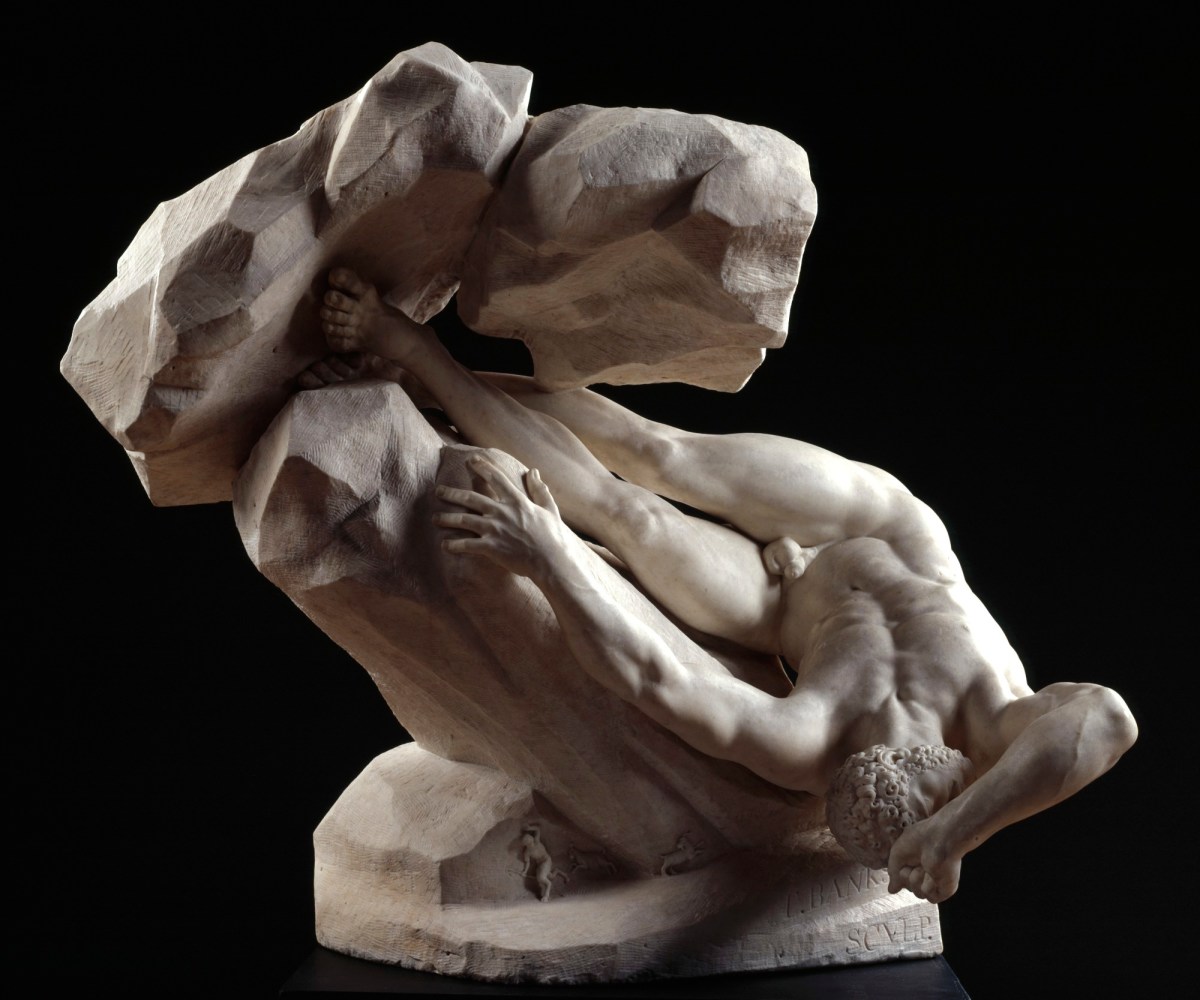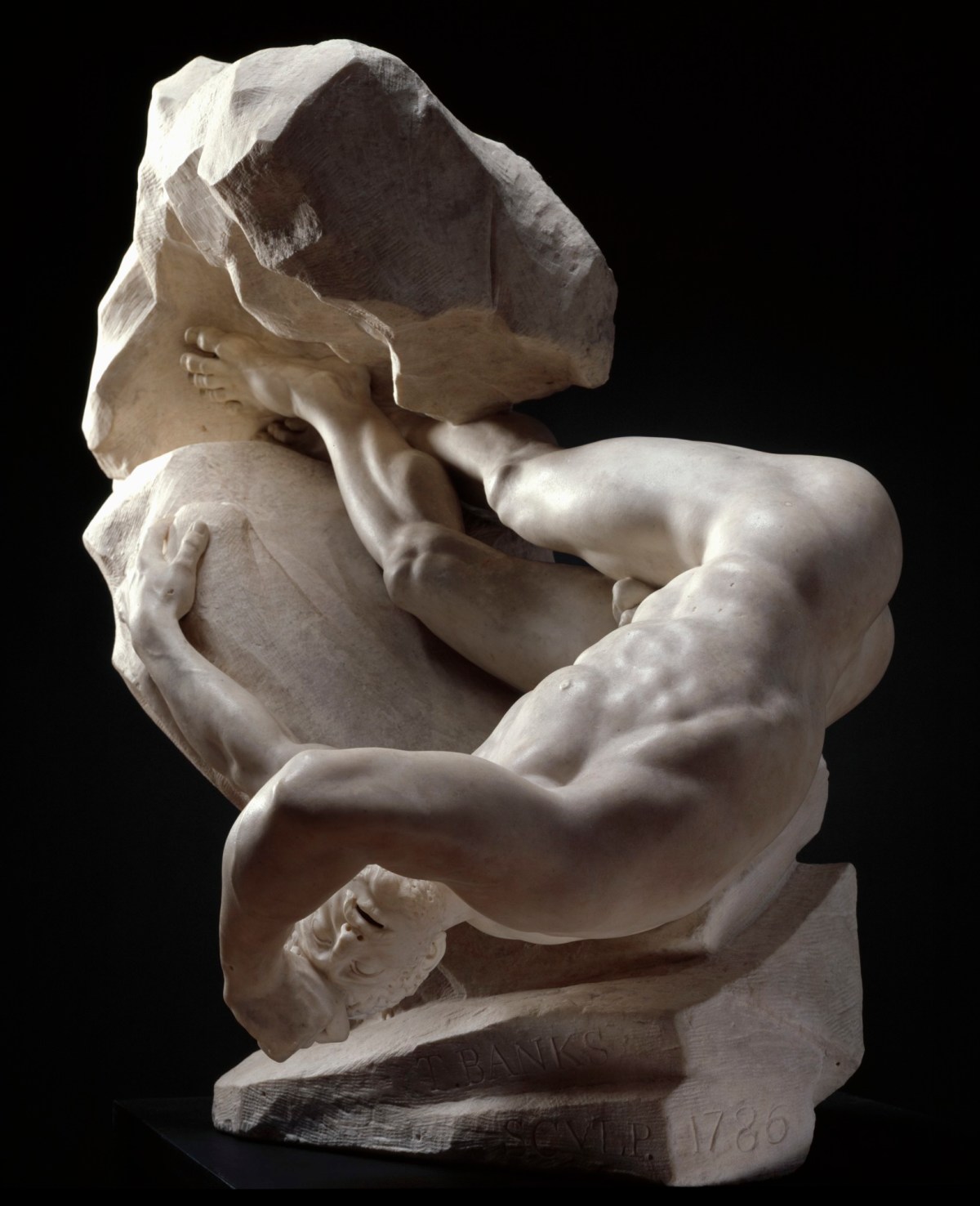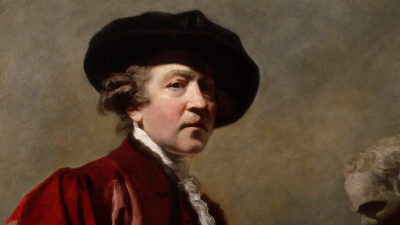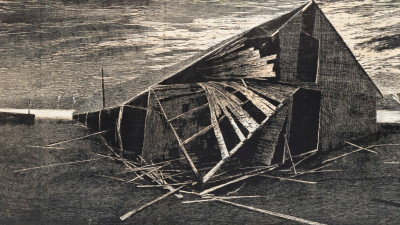
Thomas Banks RA, The Falling Titan, 1786.
Marble. 845 mm x 902 mm x 584 mm, Weight: 265 kg. © Photo: Royal Academy of Arts, London. Photographer: Paul Highnam.
This image is not available to download. To licence this image for commercial purposes, contact our Picture Library at picturelibrary@royalacademy.org.uk

Thomas Banks RA, The Falling Titan, 1786.
Marble. 845 mm x 902 mm x 584 mm, Weight: 265 kg. © Photo: Royal Academy of Arts, London.
This image is not available to download. To licence this image for commercial purposes, contact our Picture Library at picturelibrary@royalacademy.org.uk
The Falling Titan, 1786
Thomas Banks RA (1735 - 1805)
RA Collection: Art
A giant, having failed in his attempt to reach Olympus, hurtles towards the earth, about to be crushed by the very stones with which he planned to overthrow Jupiter. Dramatic foreshortening heightens the dynamism of the tumbling titan, as does the contrast in scale between his mighty figure and the tiny figures of a satyr and goats.
Thomas Banks began studying at the Royal Academy Schools in 1769, making him one of the first students in the Schools—in 1770 his work earned him a Gold Medal and the travelling scholarship to Rome. It was perhaps in recognition of the support he had been given by the Academy earlier in his career that Banks presented this sculpture to the Royal Academy as his Diploma work after he was elected as an Academician in 1786. In comparison with the Diploma Works deposited by the earlier Academician sculptors Edward Burch, Joseph Nollekens and John Bacon, The Falling Titan was an extremely prestigious work to present.
Banks claimed this sculpture was a standalone work—according to his daughter Lavininia, he said 'he conceived the subject to exist in the block of marble, à priori, and that it was called forth by the sculptors hand’. Lavinia herself, however, believed it was probably based on sketches Banks had made with Henry Fuseli in Rome some years previously. Banks also produced a clay model for the work, a plaster cast of which is in the RA Collection (03/1674), and made an etching of the same subject (05/330) in which the satyr and goats flee from the falling rocks.
The work was warmly praised—J.T. Smith described it as ‘a work far superior to any before produced in England, and which, perhaps, never will be surpassed’, while another contemporary review found that ‘for correctness of design, and masterly stile of execution, it seems to be superior to anything in that line that has yet been presented to the Academy’ (Myrone, 2005, p.261).
Further reading
C.F. Bell, ed., Annals of Thomas Banks : sculptor, Royal Academician ; with some letters from Sir Thomas Lawrence, P.R.A. to Banks's daughter, 1938, p.68
Martin Myrone, Bodybuilding: Reforming Masculinites in British Art 1750-1810, New Haven & London, 2005
J.T. Smith, Nollekens and his Times, 1828, vol. 2, pp. 192-193
Object details
845 mm x 902 mm x 584 mm, Weight: 265 kg
Associated works of art
1 results
Start exploring the RA Collection
- Explore art works, paint-smeared palettes, scribbled letters and more...
- Artists and architects have run the RA for 250 years.
Our Collection is a record of them.




